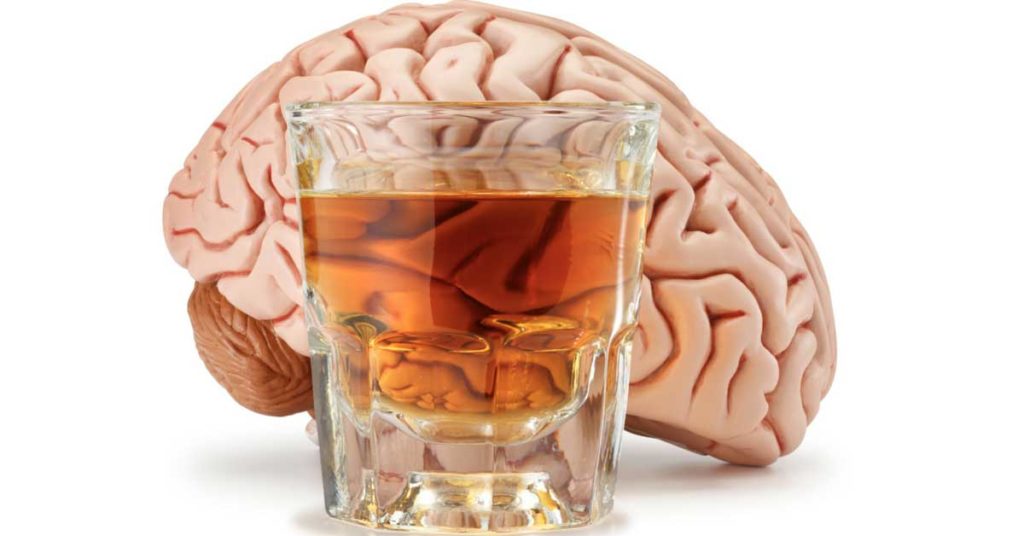Read the latest and greatest from our team
of incredible specialists.

Beach House Recovery Center » Blog » The Insanity of the Alcoholic Mind: How the Experts Explain It
Whether you’re a high-functioning alcoholic on the fence about getting treatment or in recovery and feeling tempted to drink, here’s something you urgently need to know: the disease of alcoholism wants to lock you up for life and take away your key to happiness and freedom.
Thankfully, you have an insanity plea bargain. That’s right: what’s often described in AA meetings and recovery circles as the “insanity” of alcoholism and the alcoholic mind — distorted thinking that feeds compulsive drinking despite the negative consequences — now has an explanation from experts in the field of addiction science. That explanation may be the very thing that helps you seek treatment or stay sober in recovery: it may be your key to becoming “happy, joyous and free.”

If you’re regularly getting stuck in your head or in a repetitive loop of negative self-talk, or if you constantly find yourself at the beck and call of strong impulses to drink, take heart: this distorted thinking is not a product of you; these thought distortions are actually your brain under the long-term influence of alcohol.
Recent findings from addiction science now evidence this claim. Researchers from Harvard Medical School used high-resolution structural magnetic resonance imaging (MRI) to explore what, if any, differences distinguished alcoholics’ brains from non-alcoholics’ brains. What they found (published in full in the journal Alcoholism: Clinical & Experimental Research) was stunning: the brains of alcoholics showed significantly reduced white brain matter, particularly in the frontal lobes, those parts of the brain most critical to impulse control and learning new behaviors. And, the greater the alcohol consumed, the greater the damage.
The findings go a long way to explaining the insanity of alcoholism and the obstacles it poses to successful recovery. The very pathways that support self-monitoring, planning, judgment and reasoning are actually physically impaired by chronic misuse of alcohol. Getting stuck in your brain, negative self-talk or poor impulse control are direct extensions of a brain damaged by excess alcohol, and chances are that if you’re a high-functioning alcoholic, your denial of a drinking problem is, too.
Still other studies have shown how gray matter, a major component of the central nervous system responsible for impulse control, memory, planning and information processing, also suffers damage from heavy drinking.
In other words, the insanity of the alcoholic mind is a real phenomenon that you can witness on a brain scan and that is both the cause and result of untreated alcoholism.
What the Harvard study also showed is that the earlier you get help for alcoholism, the better your chances of reversing these long-term neurological effects; and the better your chances of preventing permanent brain damage. Here is how Harvard neuropsychologist and study co-author Catherine Brawn Fortier puts it:
“Our data demonstrated possible recovery of tissue of the left inferior frontal gyrus with maintained abstinence in those alcoholics who successfully stopped drinking prior to their fifth decade. This finding is important because it demonstrates a possible critical threshold; excessive heavy drinking after a certain age — our data indicated age 50 — may lead to permanent brain changes, whereas earlier in life there may be more chance for brain recovery with sobriety.”
The message is clear. Now is the time to get help for an untreated drinking problem or a temptation to relapse. Your insanity doesn’t have to last forever — but it may, if you don’t get help soon…
Find freedom today.
Whether you’re researching for yourself or a loved one, Beach House can help. We understand that this is a serious time in your life and that the treatment center you choose matters. We want you to feel comfortable and empowered to make the right decision for yourself, a friend, or a family member. This is why a counselor is waiting and available to answer your questions and help put your mind at ease regarding the next steps. Many of the staff at Beach House have walked in your shoes. If you feel you’re ready or want more information about how to help a loved one, we can help today. You can also learn why we are voted the #1 rehab for addiction treatment in Florida.
We accept most major insurance plans and can verify your benefits quickly and confidentially.
We’re committed to helping you access the care you need, our admissions counselors can guide you through your coverage options and available resources.





"*" indicates required fields